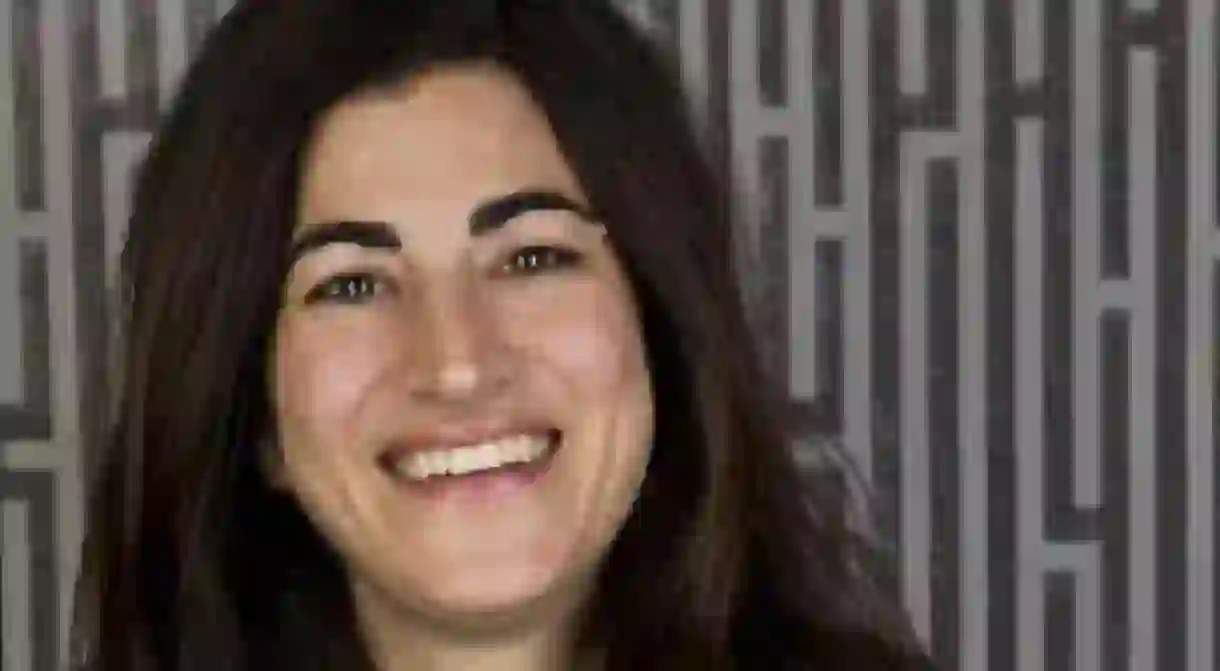Why Jehane Noujaim is Egypt's Most Important Filmmaker

Egyptian filmmaking is coming into its own with the help Jehane Noujaim’s creative energy. We discover more about the woman behind the camera
Despite producing a sterling selection of cinematic favourites throughout the 1940s and the 1960s, the majority of people today would, regrettably, doubtless struggle to name an Egyptian director or film. This is about to change: the films created by Jehane Noujaim – notably the Oscar nominated and Emmy-award winning The Square – are causing critics to sit up and take notice. We discover more about the woman who is bringing Egyptian cinema back into the light.
Going back to the roots of documentary filmmaking, Noujaim adopts the cinéma vérité in her films, allowing the viewer to take a more ‘truthful’ look at the individual subjects. Unlike other popular documentary makers, including Michael Moore, Errol Morris and Werner Herzog, Noujaim removes the problem of featuring herself ‘in the film’. Noujaim neither appears on camera nor provides narration, instead following her subjects from a fly-on-the-wall perspective, coupled with occasional moments of one-on-one interaction between the subject and the camera. She couples the vérité style with bold editing decisions to create an interesting blend of documentary styles resulting in sensitive and thought-provoking films. Editing is clearly vital to Noujaim’s filmmaking process as can be seen in The Square, with her use of five main editors together with an additional ten assistant editors.
Her first feature documentary, Startup.com(2001), follows the founders of the ecommerce govWorks during the boom and bust of the dotcom bubble during the late 90s and early 2000s. For this project, Noujaim followed her subjects for two years (1999-2000), giving her an unprecedented amount of access and footage and providing the viewer with true insight into the lives of the subjects.
Control Room (2004), Noujaim’s second feature-length documentary, explores the relationship between Al Jazeera and Western news networks during the 2003 invasion of Iraq. Grossing over $2million on a budget of under $100,000, Noujaim was able to tap into a subject that clearly enthralled and captivated the general public. The film includes a number of prominent news correspondents and journalists as well as close access to Al Jazeera’s news rooms. Released during a difficult period of mass Western mistrust of Arab nations and the Middle East, Control Room was able to provide an impartial perspective and question various media reflections of Iraq.
It is The Square however,that has been Noujaim’s most successful and popular film to date. Over the course of the piece, she follows the ongoing Egyptian Revolution of 2011 from its very beginnings in Tahir Square through to its conclusion at the end of 2013. Whilst news footage at the time was covering identical events, Noujaim got closer to the action and in following three protestors – including an actor, a member of the Muslim Brotherhood and a regular Egyptian citizen – she was able to give insight into the events of the Revolution that were not made readily available through Western media. That fact that the events were taking place in Noujaim’s home country and she could freely communicate with the protestors in her native language, provided the film with a unique intimacy.
The Square‘s success is testament to Noujaim’s increasing public prominence. Noujaim consistently manages to tackle controversial and dangerous themes and not only make them accessible but lend them a personal dimension. Whilst media regulated reporting is ultimately fleeting, Noujaim’s documentaries are abiding, in-depth documentations of defining events. She has been known to continue working and editing until just prior to the release date, making her films incredibly detailed and immediate, demonstrating her commitment to showing the most ‘correct’ or ‘true’ version of events.
Noujaim takes significant risks in creating her films, both artistically and physically, and clearly understands that this harvests rich and revealing material. With precious few female directors in the film industry as a whole and fewer still in the field of documentary, it is promising to see a courageous female director producing successful and truly original creations.
In 2006, Noujaim won the TED prize, allowing her to facilitate Pangea Day – a multinational multimedia event designed to unite millions. Designed in the style of a typical TED initiative – to improve understanding of the world around us – this project demonstrates the unity that new media fosters. In the same vein as her films, Pangea Day demonstrates Noujaim’s desire to cross borders and close the distance between nations and people.
Whilst film is a creative medium in itself, Noujaim’s commitment to locating the initial catalyst of global unrest and attempting to reduce it – through charity work and education – renders her a considerably important voice on the world stage. This ability to both empathise and inform is what keeps the formidable number of viewers and loyal fans consistently engaged. Far from the glossy films of the ‘golden era’ of Egyptian film, Noujaim is bringing Egyptian film into the modern age and firmly planting it in the public consciousness, contributing a better understanding of Egyptian culture to Western society.













